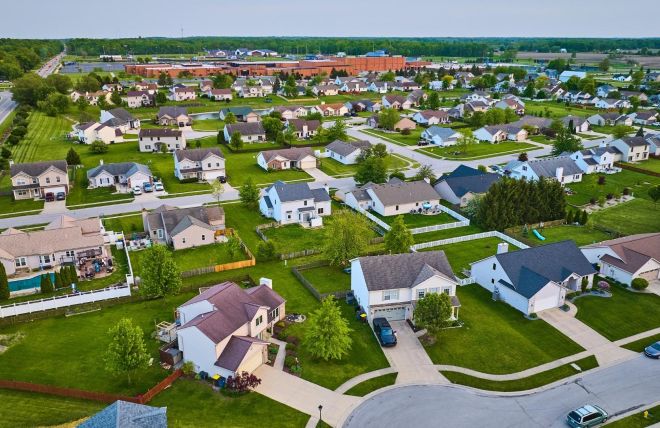As the popularity of short-term rental platforms like Airbnb continues to rise, many condominium and homeowners associations (HOAs) find themselves navigating the choppy waters of community management when it comes to these rentals. While Airbnb can offer homeowners a chance to generate extra income, it also poses potential disruptions that can impact community living. Establishing and enforcing clear rules is critical to maintaining harmony and security in residential communities. Here’s how your HOA can effectively manage Airbnb activities.
Understanding the Legal Framework
Before implementing any policies, it’s essential to understand the legal landscape surrounding short-term rentals in your area. Local laws vary significantly from one municipality to another, with some cities having strict regulations that limit or even prohibit short-term rentals. HOAs need to ensure that their policies comply with local laws to avoid legal pitfalls and ensure enforceability.
Establishing Clear HOA Policies on Short-Term Rentals
Clear, detailed policies are the foundation of effective Airbnb regulation within a community. These policies should cover:
- Eligibility: Define who is allowed to host and under what conditions.
- Duration: Set minimum and maximum stay durations to prevent both hotel-like turnovers and long-term subletting scenarios.
- Areas of Use: Specify which parts of the property can be used by guests, particularly common areas and amenities.
- Safety Requirements: Implement safety guidelines that protect both hosts and guests, such as compliance with fire safety standards.
HOA Communication of Airbnb Rules to Residents
Once policies are established, communicating them effectively to all residents is crucial. This ensures that everyone understands what is expected and the repercussions of non-compliance. Regular community meetings, newsletters, and the HOA’s website are excellent channels for disseminating this information. Transparency here not only educates but also helps in garnering support from the community, making enforcement smoother.
Monitoring and Compliance
To ensure that residents comply with the Airbnb policies, HOAs might consider using software that tracks short-term rentals and alerts the board to unauthorized listings. Regular audits and encouraging community members to report violations can also be effective. Technology solutions that integrate with platforms like Airbnb can provide real-time compliance data, making monitoring less intrusive and more efficient.
Handling Violations
Enforcement should be fair but firm. Establish a clear process for handling violations, which may include:
- Warnings: Issue a formal warning for first-time violations.
- Fines: Implement a fine system for repeated breaches, scaled according to the severity and frequency of the offense.
- Legal Action: As a last resort, legal action may be necessary for flagrant or ongoing violations.
Benefits of Enforcing Airbnb Rules
Properly managed, Airbnb can benefit homeowners and the community. Enforcing rules helps maintain safety, peace, and order within the community, ensuring that all residents enjoy their right to quiet enjoyment of their properties. It also helps preserve property values by preventing the potential negative impacts of unchecked short-term rentals.
Real World Case Study
Consider the case of a Florida-based HOA that faced escalating complaints about noise and security due to unregulated Airbnb rentals. After implementing a registration system for all short-term rentals and requiring hosts to provide guest information to security, incidents significantly decreased, and resident satisfaction improved.
- Background: In a bustling downtown Wellen Park Florida, a large condominium complex faced increasing concerns over the rapid turnover of guests due to Airbnb rentals. The condo board was worried about security risks and the wear and tear on common facilities. They decided to implement stringent rules governing Airbnb rentals to safeguard both property and residents.
- Eligibility Requirements: To address these concerns, the board introduced an eligibility criterion requiring all potential guests and hosts to undergo a background check. This was aimed at ensuring that hosts/guests did not have histories of drug-related or violent offenses, thus maintaining a safe community environment for all residents.
- Duration of Stay: The HOA board also set a minimum duration of six months for any short-term rental. This policy was designed to discourage the transient traffic typical of shorter stays and promote a more stable and committed residential community. This move significantly reduced the issues associated with frequent guest turnovers, such as noise complaints and security management.
- Areas of Use: The board decided that guests of Airbnb rentals would have access to all areas that regular residents enjoyed, including fitness centers, swimming pools, and lounge areas. This decision was made to ensure fairness and maintain a sense of community, but it came with strict guidelines to ensure that these areas were respected and preserved by all users.
- Safety Requirements: To further protect the community, the condo board implemented robust safety guidelines for all Airbnb rentals. These included compliance with fire safety standards—such as ensuring that all rental units had functional smoke detectors, fire extinguishers, and clear evacuation plans. Hosts were required to provide guests with a safety protocol document upon their arrival.
- Outcome:The implementation of these policies led to a noticeable improvement in community relations and a reduction in security-related incidents. Residents felt more secure knowing that Airbnb hosts and guests were properly vetted and that stays were longer, which allowed for better acquaintance and integration into the community. The accessibility to common areas under clear conditions fostered a harmonious environment, while adherence to safety standards ensured that emergency protocols were well understood by everyone.
This case study serves as a successful model for other condos or HOAs considering the regulation of Airbnb activities within their communities. By setting clear policies and ensuring they are communicated and upheld, associations can preserve the integrity and safety of their living environments.
Conclusion
The rise of Airbnb presents new challenges and opportunities for HOAs. By establishing clear rules, communicating effectively, monitoring compliance, and handling violations appropriately, HOAs can ensure that short-term rentals benefit rather than burden their communities.







